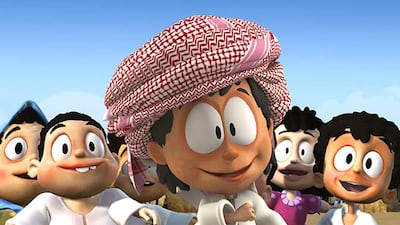When Freej was first broadcast, the target audience was women aged between 18 and 35 but the animated tale of Emirati grandmothers struggling to adjust to the UAE's headlong modernisation struck a chord with nearly everyone. Eight seasons later, the grandmothers do everything from the air-safety briefing on FlyDubai to starring in a stage show, Freej Live: Abood's Dream, at Emirates Palace.
Any success has to be applauded, and especially when it involves a leap into the unknown as was the case when Mohammed Saeed Harib created Freej in 2006. But there is a far greater value to these grandmothers than simply entertainment, because it is powerfully affirming to see one’s own society represented in popular culture.
This often sets the tone for how a country or society is perceived. American life is known and envied worldwide not so much for anything the government does but because of US sitcoms. This is possibly due to the ubiquity of impossibly photogenic characters living in lavish apartments despite not seeming to work. So, too, British soaps create a global image, albeit somewhat less photogenic and more grittily realistic.
And that is the real value of Freej. In a fast-modernising country, there remains a place where abayas, hijabs and kaffiyehs are still the norm.

